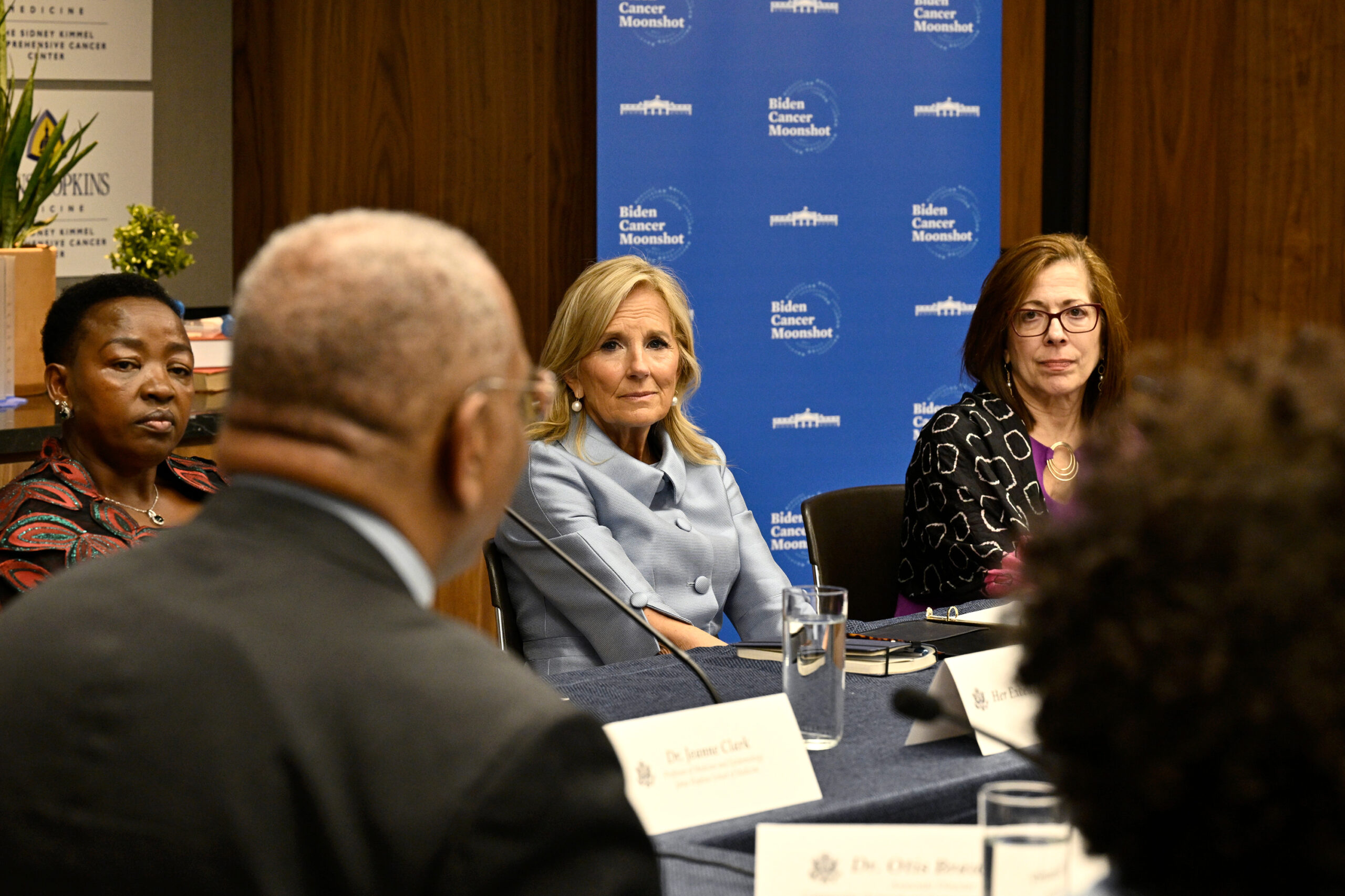Jill Biden and Kenyan First Lady Rachel Ruto hear from Hopkins cancer researchers
Johns Hopkins oncologists and experts describe their efforts to better prevent, detect, and treat cancer

- Image Kaveh Sardari
First Lady Jill Biden has a new partner in her effort to end cancer as we know it—her Kenyan counterpart, Rachel Ruto.
The two first ladies and Danielle Carnival, the deputy assistant to the president for the Cancer Moonshot, recently met with Sidney Kimmel Comprehensive Cancer Center team members to hear about their work to better prevent, detect, and treat the disease.
“Cancer touches us all, unfortunately. And that’s true in the United States. And it’s true in Kenya, and it’s true around the world,” Biden said at the event, held at the Johns Hopkins University Bloomberg Center. “We’ve come together as communities, as really a global community, to stop it.”
Preventing cancer cases
The researchers described their efforts to prevent cancer—ranging from diet interventions to new vaccines. Liz Jaffee, the deputy director of the Sidney Kimmel Comprehensive Cancer Center, is exploring a vaccine that could attack pre-cancer in the pancreatic duct. If it works, Jaffee said, a similar approach could be taken to other cancers.
Otis Brawley, a professor of oncology and epidemiology at the Johns Hopkins University School of Medicine, directs community outreach programs for underserved populations throughout Maryland. He’s led smoking cessation projects and advises young parents on how to instill lifelong healthy habits in their children.
“Prevention of breast cancer in 50-year-old or 60-year-old women is a pediatric issue,” he said. “It’s what she eats, how she exercises, and a number of influences that she will undergo when she was 5 or 8.”
Improving cancer detection
Sara Sukumar, a professor of oncology and pathology at the Kimmel Cancer Center, told the first ladies about a new cancer detection tool she created for women in developing countries where mammograms aren’t common.
Patients with large lesions on their breasts often seek medical care “very late,” she said, and then subsequent care is delayed. Her lab created a test that uses existing infrastructure and can provide results in three hours. Early results of a trial in South Africa are promising, she added. Sukumar hopes that with more education, women will take the test earlier, allowing for earlier treatment and better outcomes.
“That’s amazing,” Biden said. “We should have more women knowing about this.”
Bettering treatment
Earlier this year, the Biden administration announced that seven of the nation’s largest insurers agreed to cover the cost of “cancer navigators,” people who guide patients and their families through the labyrinth of treatments and appointments that follow a diagnosis.
Cancer navigators at the Kimmel Cancer Center connect patients to resources that make treatment easier. Dina George Lansey, a professor of oncology and the associate deputy director of community outreach at the center, compared the navigator program to precision medicine—it’s about getting the right treatment at the right time.
“If we think of navigation that way, it means that navigation will look different depending on where you are in the path of care,” she said. “If I need to navigate you to screening, and you have a transportation problem, meeting you with those resources is very different than if you have a diagnosis and I need to think about getting you to multiple radiation therapy appointments or clinical trial appointments.”